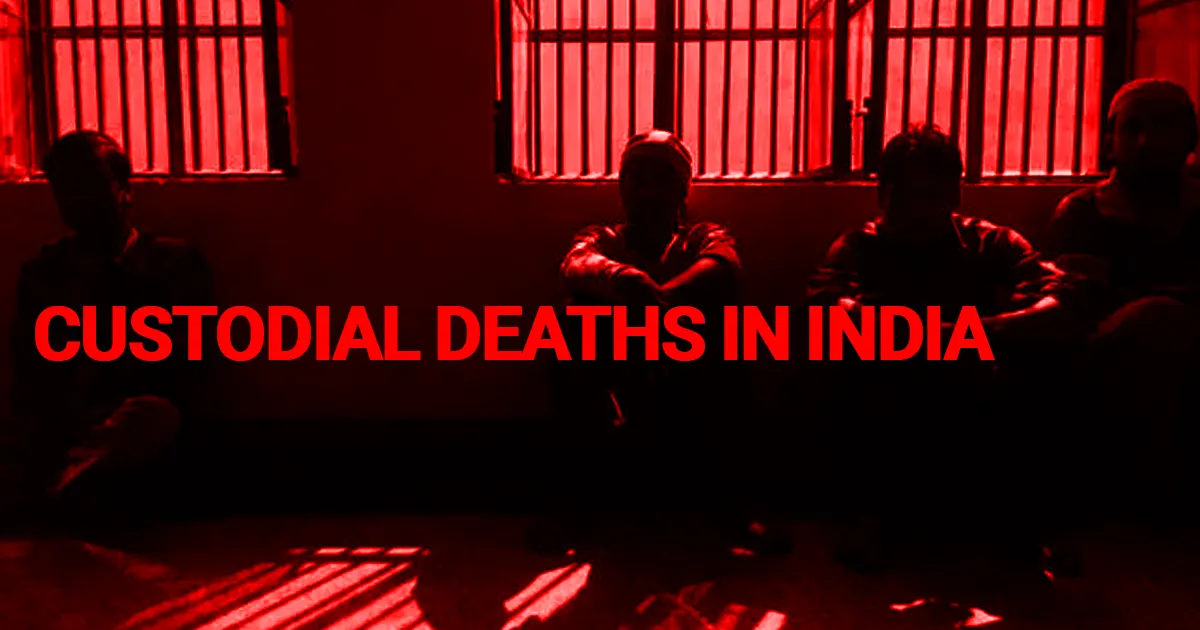GS2 – SOCIAL JUSTICE

CUSTODIAL DEATHS IN INDIA, referring to fatalities occurring while individuals are in police or judicial custody, remain a significant human rights concern. These incidents often highlight issues related to law enforcement practices, systemic challenges, and the need for comprehensive reforms.
Statistics:
- Reported Cases: Between April 1, 2017, and March 31, 2022, India registered 669 deaths in police custody. The annual breakdown is as follows:
- 2017-2018: 146 deaths
- 2018-2019: 136 deaths
- 2019-2020: 112 deaths
- 2020-2021: 100 deaths
- 2021-2022: 175 deaths
State-wise Data: Gujarat reported the highest number of custodial deaths (80) over the past five years, followed by Maharashtra (76), Uttar Pradesh (41), Tamil Nadu (40), and Bihar (38).
Legal Framework:
- Constitutional Provisions: Article 21 of the Indian Constitution guarantees the right to life and personal liberty, which custodial deaths directly violate.
- Indian Penal Code (IPC): Sections 330 and 331 penalize acts causing hurt or grievous hurt to extort confessions, aiming to deter custodial torture.
- National Human Rights Commission (NHRC): The NHRC mandates that all custodial deaths be reported within 24 hours and recommends judicial inquiries to ensure accountability.
Challenges:
- Underreporting: Many cases of custodial violence go unreported due to fear of reprisal or lack of awareness.
- Impunity: Low conviction rates for officials involved in custodial deaths contribute to a culture of impunity. In the past two decades, out of 1,888 reported custodial deaths, only 26 police personnel have been convicted.
- Systemic Issues: Overcrowded prisons, inadequate training, and lack of accountability mechanisms exacerbate the problem.
Recent Developments:
- Judicial Oversight: Courts have increasingly taken suo motu cognizance of custodial deaths, emphasizing the need for transparent investigations.
- Legislative Measures: Discussions are ongoing regarding the implementation of the Prevention of Torture Bill to provide a robust legal framework against custodial torture.
Recommendations:
- Police Reforms: Implementing comprehensive police reforms, including better training and sensitization, can reduce instances of custodial violence.
- Independent Investigations: Establishing independent bodies to investigate custodial deaths can ensure impartiality and accountability.
- Legal Aid: Providing detainees with access to legal representation can safeguard their rights and deter potential abuse.
Addressing custodial deaths in India requires a multifaceted approach, encompassing legal reforms, systemic changes, and a commitment to upholding human rights.




